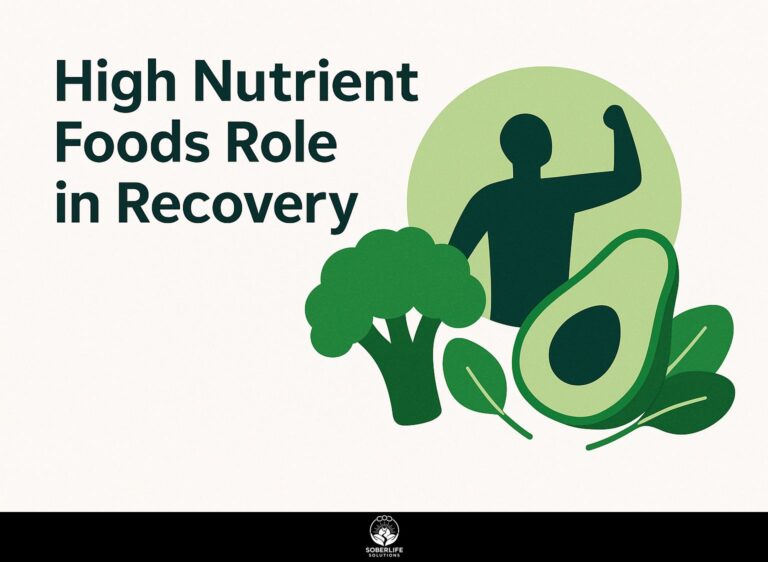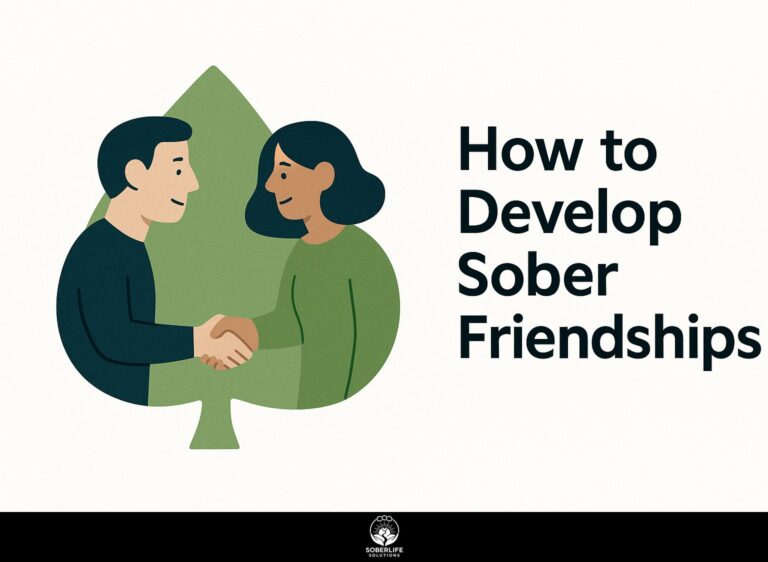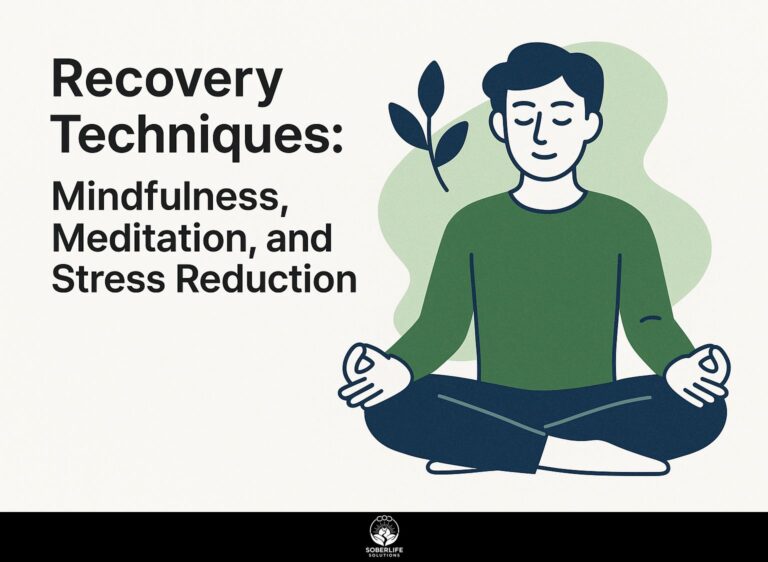Building New Connections for Recovery
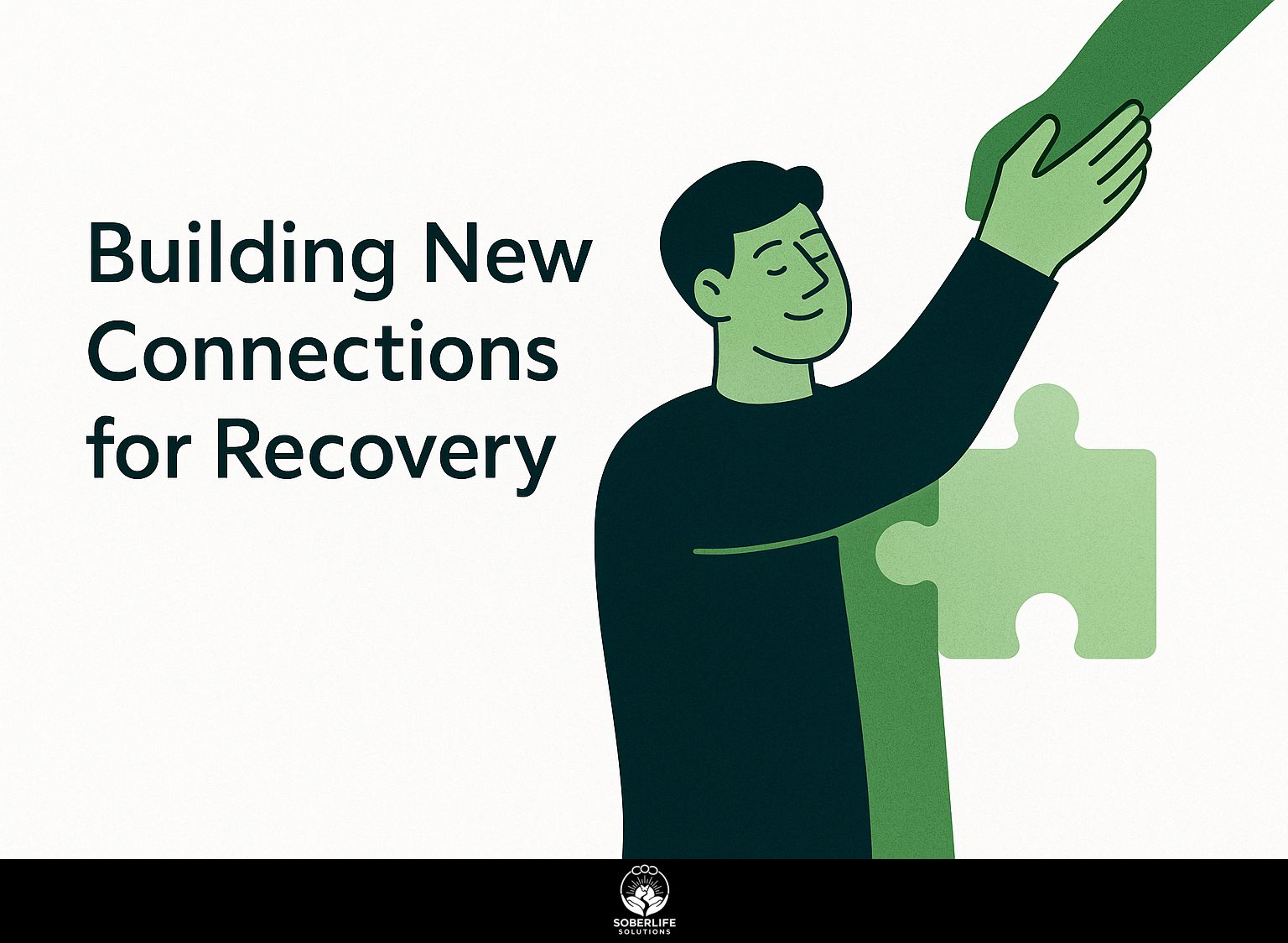
Building human connections is essential for recovering from addiction, especially in an online setting affected by the pandemic. These relationships offer support and bring in accountability partners to help face the difficulties of staying sober. This article talks about how important community is in recovery, sharing ways to build relationships and use technology to improve your support network. Find out how building real relationships can help in your recovery process.
Key Takeaways:
The Value of Community
Help from others is essential for emotional well-being. 75% of people say that sharing experiences is important for getting better.
Healthy relationships often lead to increased emotional resilience. Joining support groups helps with recovery. 68% of people who attend say they feel less alone.
Joining community activities, such as volunteering or joining clubs, can build social bonds. Tools like Meetup or local community boards help find groups that align with personal interests. The National Alliance on Mental Illness highlights the importance of community involvement in improving mental health, emphasizing how these connections foster a sense of belonging.
Feedback from people looking for social connections shows that talking openly about problems can greatly improve mental health, emphasizing that individuals are not alone in what they go through.
Types of Connections in Recovery
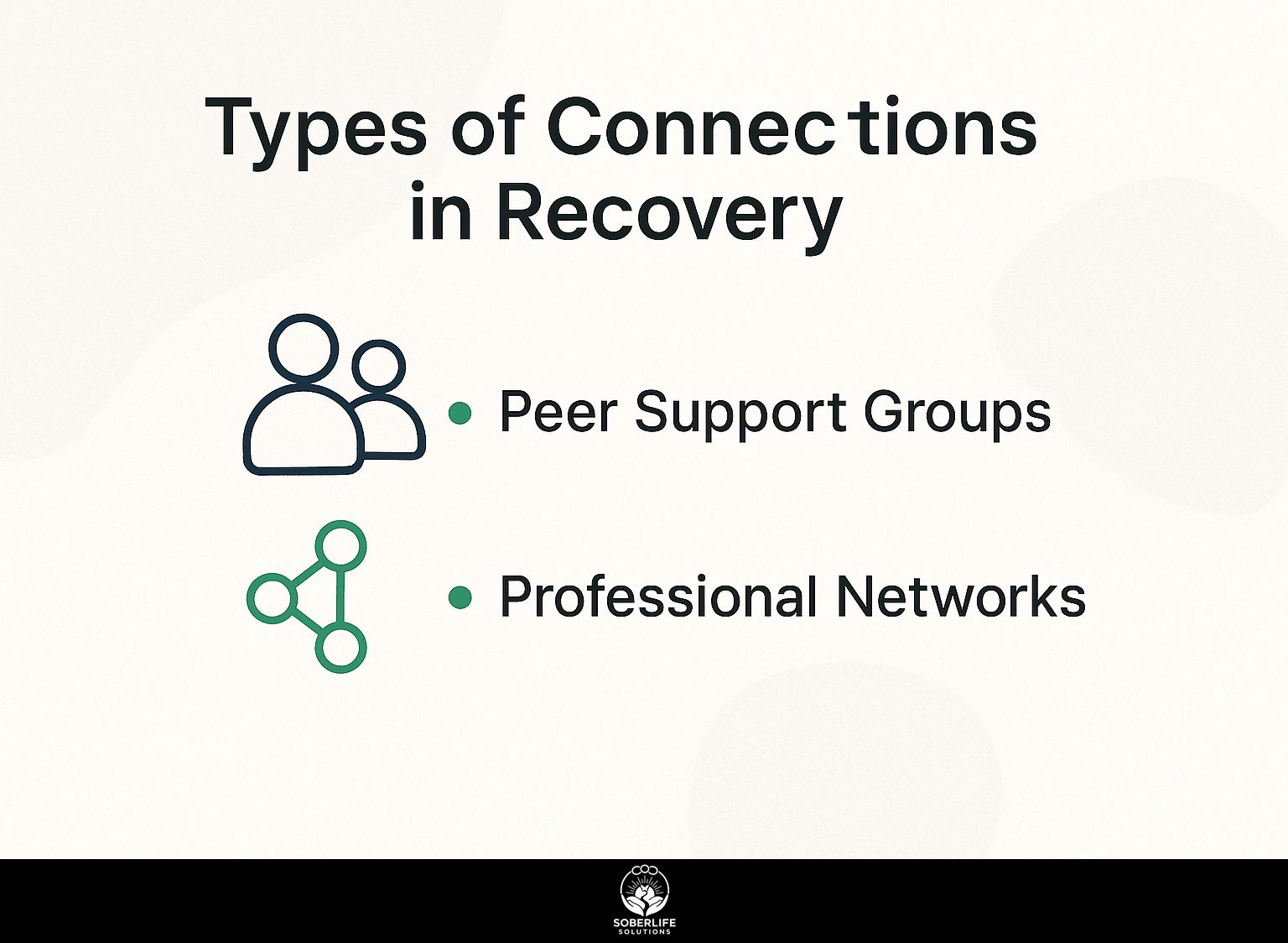
Different types of connections help with recovery. These include peer support groups and professional networks, each playing a specific role in the healing process. If you’re interested in learning more about how to effectively connect with these groups, consider our guide on joining online support groups for alcohol recovery.
Peer Support Groups
Groups like Alcoholics Anonymous offer emotional help through shared stories, which is important for creating trust and strength.
These groups meet weekly and follow a regular schedule to strengthen connections. Members share personal stories, discuss challenges, and celebrate successes, creating a sense of belonging.
For example, Toastmasters International helps people improve public speaking skills by giving feedback from peers, demonstrating different ways support can work. Research shows that participants in peer support programs report a 30% increase in coping skills and overall well-being, as detailed in a study published by ScienceDirect.
Such groups thrive on mutual aid, reinforcing the idea that shared struggles often lead to collective strength.
Professional Networks
Therapists and staff at treatment centers provide important help and information for people going through recovery.
These networks provide various resources that complement peer support systems, such as workshops focused on coping strategies, relapse prevention, and life skills.
Organizations such as Al-Anon and SMART Recovery hold meetings and provide learning materials to help people improve themselves. Recent research from Nature highlights the effectiveness of these support systems in fostering recovery.
Many networks link people to licensed counselors for personal help, providing a complete method for recovery.
Using these resources, people can create a reliable support system that helps them stay strong and encourages ongoing recovery.
Building Personal Relationships
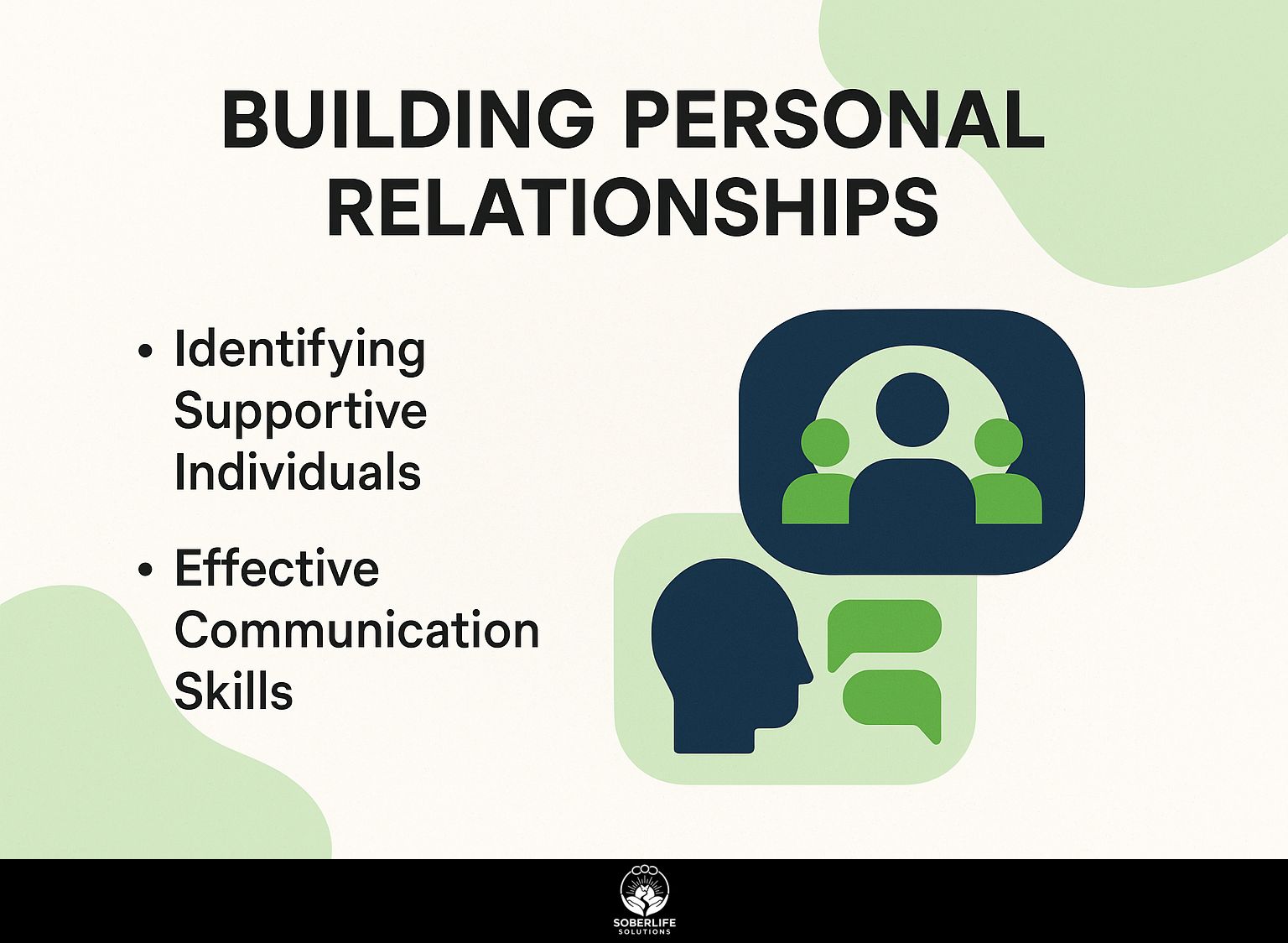
Building personal relationships is important in recovery.
Using good communication methods strengthens emotional bonds and helps prevent feeling alone. As mentioned, participating in activities such as couples and family counseling can further enhance these bonds, providing essential support throughout the recovery journey.
Identifying Supportive Individuals
Having people who provide help is important, as research shows that strong support groups can lower relapse rates by up to 60%.
- Begin by evaluating your requirements to identify areas where help is needed.
- Consider creating a personal support map to visualize connections; include friends, family, mentors, and support groups.
- Look for traits such as empathy, active listening, and a non-judgmental attitude in potential supporters.
- For instance, a friend who has shown consistent encouragement during tough times or a mentor who provides constructive feedback can be excellent candidates.
- Check and change your support system often so it continues to fit your changing needs.
Effective Communication Skills
Good communication can greatly improve emotional well-being. Techniques such as active listening can increase empathy and awareness in relationships.
To practice active listening, focus entirely on the speaker, avoiding interruptions and showing genuine interest.
Use ‘I’ statements to express your feelings without placing blame; for instance, say, ‘I feel upset when you dismiss my ideas,’ rather than ‘You always ignore me.’ Maintaining vulnerability can deepen connections.
Share your own emotions openly, which often encourages reciprocal sharing. For instance, in a talk, share how a situation affected your emotions to build trust and encourage shared feelings.
Utilizing Technology for Connection
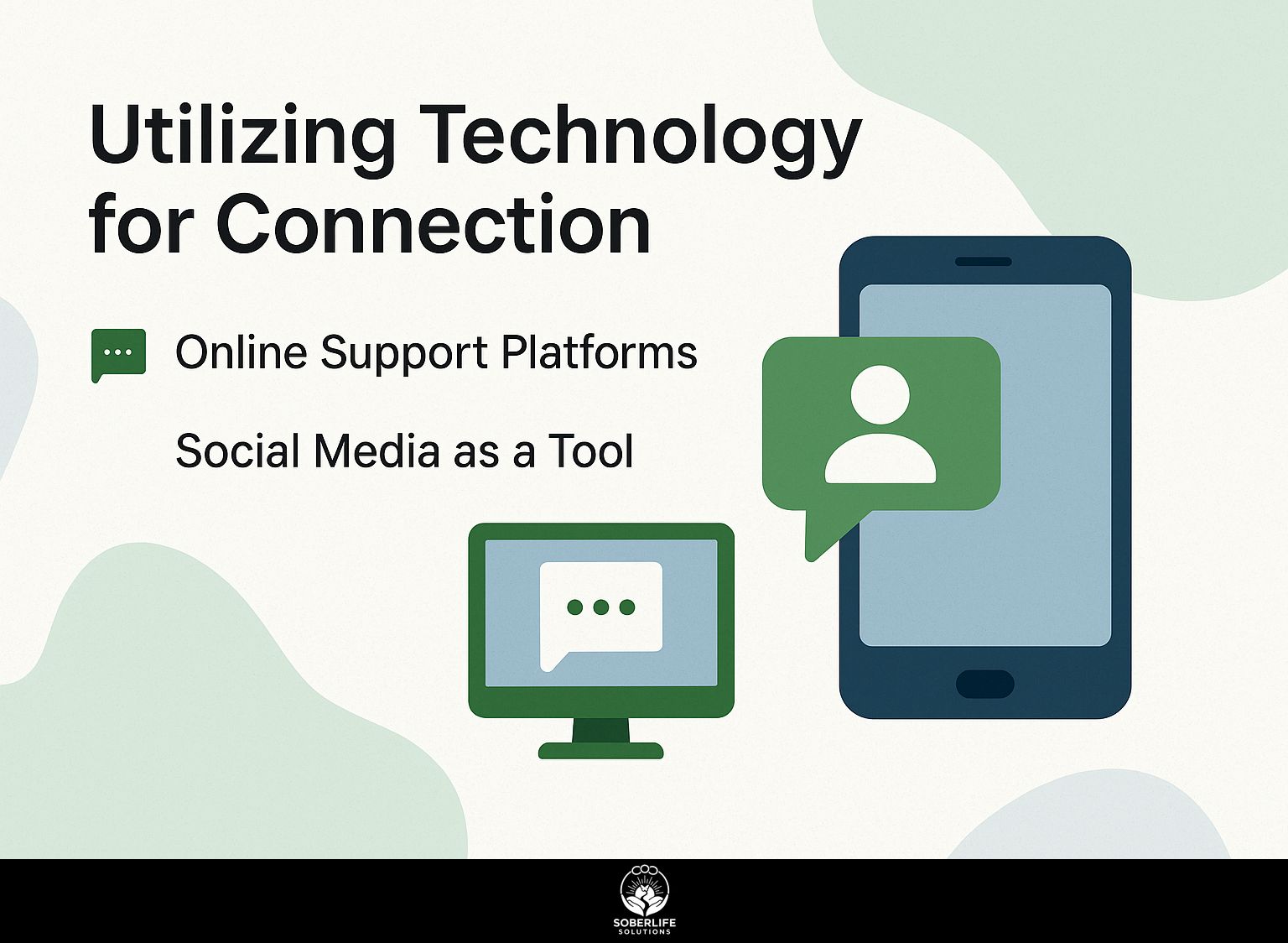
Technology provides new ways for people to connect. Online support platforms increased by 40% during the pandemic, helping people participate in virtual communities. For an extensive analysis of this trend, our comprehensive study of virtual recovery groups examines their impact on addiction recovery.
Online Support Platforms
Platforms like BetterHelp and 7 Cups offer instant online help, supporting many people as they work on their recovery.
These platforms link users with licensed therapists and trained listeners, and also build community through group chats and forums.
Users often share their success stories, saying that 7 Cups’ peer support helped them manage anxiety, while BetterHelp’s professional help was essential during a crisis.
Tools like the mood tracker on BetterHelp allow users to keep track of their feelings, helping therapists understand how they are doing.
These platforms help people by providing resources and support so they can manage their mental health well.
Social Media as a Tool
Social media can act as a double-edged sword, with 70% of users reporting positive impacts from supportive online communities, while cautioning against negative influences.
To use social media successfully for help, begin by signing up for platforms like Facebook or Reddit, where specific groups encourage positivity.
Look for communities that align with your interests, such as #MentalHealthAwareness or #RecoveryIsPossible, which highlight encouraging stories and resources.
To avoid pitfalls, be mindful of groups that promote toxicity or negativity-monitor your emotional responses and set time limits.
Make sure to participate actively; talking about your experiences can motivate others, and celebrating achievements together builds strong community connections.
Creating a Supportive Environment
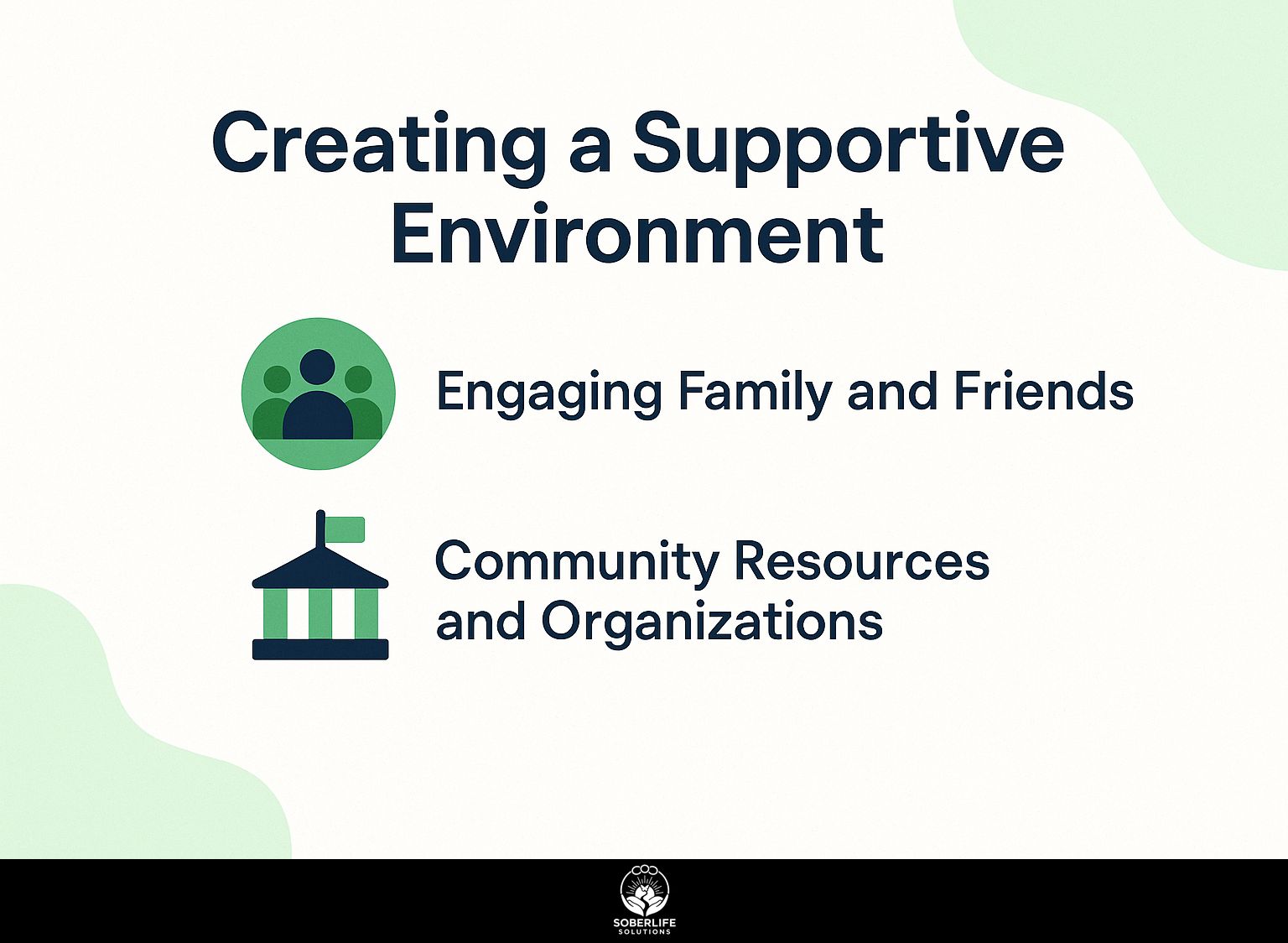
Creating a supportive environment is important, where family and friends play a key role in improving emotional health and resilience during recovery. Setting boundaries in these relationships can also be crucial (read more about setting boundaries in recovery).
Engaging Family and Friends
Being with family and friends can improve your mood by promoting accountability and providing support when challenges arise.
Involving loved ones in the recovery process can take various forms. For example, consider organizing regular family meetings to discuss individual challenges and progress, strengthening communication and accountability.
You could also implement a buddy system, where a family member checks in daily-this simple effort proves effective in promoting emotional resilience.
Spending time with your family, like going for a walk or having a game night, can reduce stress and strengthen bonds.
Research indicates that these treatments increase recovery success rates by almost 40%.
Community Resources and Organizations
Local community resources, such as support groups and treatment centers, are essential, with over 30% of people stating they are key for their recovery.
Organizations like Alcoholics Anonymous (AA) and Narcotics Anonymous (NA) offer both peer support and structured environments for those facing substance abuse issues.
Local health departments often provide information on treatment facilities and mental health resources. The Center for Substance Abuse Treatment (CSAT) identifies several programs created to meet particular needs.
Community projects, like local health workshops, can build more supportive connections. Connecting individuals with these resources often leads to improved outcomes in recovery and increased community engagement.
Maintaining Connections for Long-Term Recovery
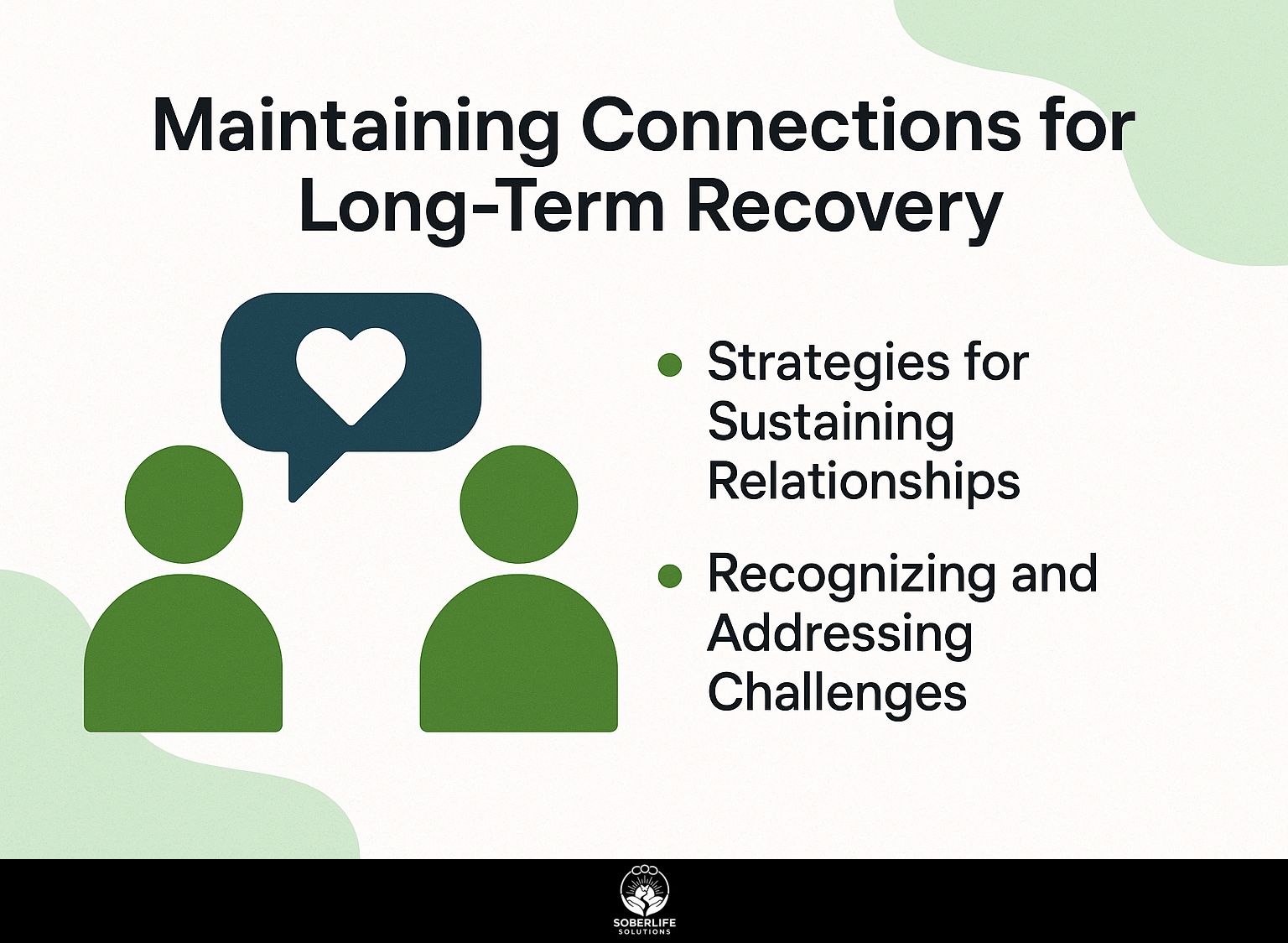
Maintaining relationships over time is important; studies show that staying in touch can reduce relapse rates by up to 50%. One of the most effective methods for staying connected is leveraging sober support systems that help sustain long-term recovery.
Strategies for Sustaining Relationships
Using strategies like regular meetings and joint activities can significantly improve long-term relationship success during recovery.
To nurture these relationships, consider scheduling weekly coffee dates or exercise sessions to bond over shared interests.
Using apps like Meetup can help you find local support events or group activities related to hobbies.
Setting up a monthly game night can help build enjoyable experiences and encourage honest conversations, strengthening emotional bonds.
For instance, a couple working through a problem improved their relationship by alternating who cooks dinner, testing different recipes, and discussing their objectives. This helped them strengthen their support for one another while spending enjoyable time together.
Recognizing and Addressing Challenges
Recognizing challenges in relationships, such as communication breakdowns, can prevent setbacks in the recovery process and promote emotional health.
To handle these difficulties well, think about having regular conversations with loved ones to encourage open communication.
Utilizing conflict resolution techniques, such as active listening and ‘I’ statements, can also help.
For instance, if a disagreement arises, try saying, “I feel upset when…” rather than placing blame. Using tools like Nonviolent Communication (NVC) can help people communicate with more empathy and clarity.
Set aside time every week to discuss emotions and personal experiences. Make sure everyone is heard and treated with respect during recovery.
Frequently Asked Questions
What is the importance of building new connections for recovery?
Building new connections for recovery is important because it provides a support network and a sense of belonging, both of which are key for overcoming addiction.
How can I start building new connections for recovery?
The first step in building new connections for recovery is to reach out to others who are also in recovery. You can do this through support groups, therapy sessions, or even online communities.
What are some ways to maintain these new connections?
It’s important to stay active in your recovery community and attend regular meetings or events. It’s also helpful to engage in activities with your new connections that don’t involve drugs or alcohol.
Can building new connections for recovery help me stay sober?
Having reliable people and forming new friendships can significantly improve your likelihood of remaining sober. These connections can provide support, responsibility, and knowledge during tough times.
Is it necessary to cut ties with old connections in order to build new ones?
While it’s not always necessary to completely cut ties with old connections, it is important to limit your exposure to people or places that may trigger cravings or negative behaviors. Surrounding yourself with positive influences can greatly aid in your recovery.
Are there any other benefits to building new connections for recovery?
Along with offering help and responsibility, forming new relationships can give different viewpoints and chances for self-improvement. It can also help combat feelings of isolation and loneliness often experienced during recovery.

